Fast Facts
- When: 27th June 2023 to 1st June 2024
- Where: Various, Final at Wembley Stadium, London, England
- Watch: TNT Sports
- Official Website: UEFA Champions League
The Champions League, formally the European Cup, is the flagship tournament in European club football. Organised by UEFA, the top teams from across the continent compete each season for one of football’s most prestigious prizes.
From the first qualifying stages in June, the tournament has progressed through the group stages, the two-legged knock out rounds and has come down to the Final showdown, a one-off match with the winner decided on the night.
The 32nd tournament since the renaming of the competition, the 69th in total, takes place in 2023/24. As one of the most anticipated betting events of the year to date, there’ll be a host of offers and promotions to take advantage of.
Existing Customer Free Bets & Money Back Offers
Get your single bets paid out if the team you back goes 2 goals ahead - for multiple bets the selection will be marked as a winner with bet365. Applies to pre-match single and multiple bets on the standard Full Time Result market for applicable competitions. Only available to new and eligible customers.
New and existing customers can get a minimum of one odds boosts per day which could be used to increase the price of bets on a Champions League market with a max stake of £50. These can be applied by selecting 'Boost' on your betting slip when available to use.
On selected Champions League matches, Betfred will offer double the odds on the first goalscorer if they score two goals in that game, and treble odds if they score three or more goals. This can apply to pre-match bets, in-play bets, or both, please check the Betfred website for a full list if qualifying matches. Note that in-play bets will be settled on the next goalscorer and any subsequent goals.
Stats Articles
- What are the Most Successful Cities in the Champions League?
- What is the Average Number of Penalties in a Football Match?
- How Often Are Players Sent Off in Football?
- Who Are The Worst Champions League Teams?
- How Many Goals Are Scored on Average in Champions League Games?
- Which Country Has The Best Champions League Record?
- Which Teams Have Won The Double In English Football?
Champions League Fixtures: Semi-Finals - Leg 1
Tuesday 30th April
- 20:00 Bayern Munich v Real Madrid
Wednesday 1st May
- 20:00 Borussia Dortmund v Paris Saint-Germain
Champions League Schedule
- Preliminary round – 27th to 30th June 2023
- First qualifying round – 11th to 19th July 2023
- Second qualifying round – 25th July to 2nd August 2023
- Third qualifying round – 8th to 15th August 2023
- Qualifying round play-offs – 22nd to 30th August 2023
- Group stages
- Matchday 1 – 19th & 20th September 2023
- Matchday 2 – 3rd & 4th October 2023
- Matchday 3 – 24th & 25th October 2023
- Matchday 4 – 7th & 8th November 2023
- Matchday 5 – 28th & 29th November 2023
- Matchday 6 – 12th & 13th December 2023
- Round of 16 1st leg – 13th & 14th, 20th & 21st February 2024
- Round of 16 2nd leg – 5th & 6th, 12th & 13th March 2024
- Quarter-finals 1st leg – 9th & 10th April 2024
- Quarter-finals 2nd leg – 16th & 17th April 2024
- Semi-finals 1st leg – 30th April & 1st May 2024
- Semi-finals 2nd leg – 7th & 8th May 2024
- Final – Saturday 1st June 2024, kick-off TBC
About the Champions League
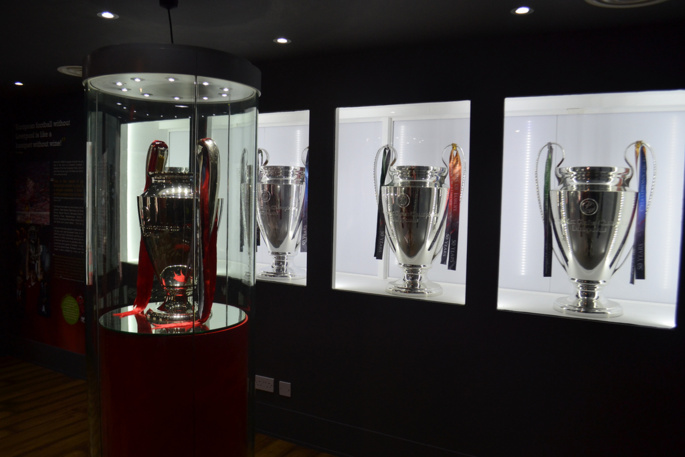
The Champions League is run by the Union of European Football Associations, which is better known as UEFA. It was inaugurated in 1955 as the European Cup, earning the moniker of the Champions League in 1992. It’s widely regarded as the most prestigious club completion in the world, inviting teams from the top divisions around Europe to take part. This is underlined by the fact that the Champions League final is the most watched annual sporting event in the world, even surpassing the Superbowl to put it into context.
The Champions League as we know it not only gained a change of name back in 1992 but also saw its current format introduced. Even so, the records and statistics were carried over from its time as the European Cup as essentially it was just a rebranding that occurred.
The Creation of the European Cup in 1955
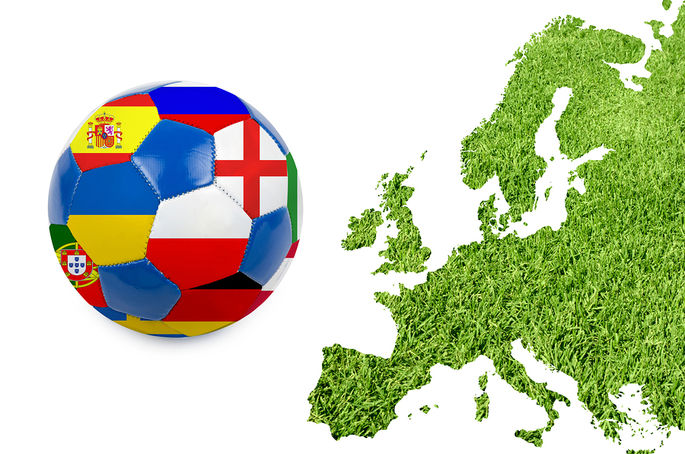
The first tournament of the European Cup kicked-off in 1955 and sixteen teams were represented, including the likes of Anderlecht, Hibernian, PSV Eindhoven, Real Madid and Stade de Reims. Real Madrid were the first winners of the tournament, running out 4-3 victors over Stade de Reims and sparking what would be their dominance in the competition over the next sixty years and more. There’s far more to tell you about than that, of course, starting with where the idea for such a contest came from.
The notion of having a pan-European competition had been in the pipeline almost from the first moment that a football was kicked in a competitive game. It came to life when the Challenge Cup was created in 1897 and saw teams from across the Austro-Hungarian Empire go head-to-head. That was a very specific tournament, obviously, but it led to the formation of the Mitropa Cup in 1927, which pitted central European teams up against each other. Three years after that the Swiss side Servette organised the Coupe des Nations, which was intended to see the national champions of European leagues compete to see which was the strongest at the end of each season. Ten teams took part in the first one, with the Hungarian side Újpest running out as winners.
Somewhat fascinatingly, it was actually the English side Wolverhampton Wanderers who were in part responsible for the tournament that would later become the European Cup. Having heard from journalists about the success of the 1948 Campeonato Sudamericano de Campeones, the editor of the French sports paper L’Équipe campaigned to UEFA that there should be a European version. These campaigns were bolstered by the claims of the Wolves manager Stan Cullis, who declared his team to be the ‘Champions of the World’ after they’d won a few friendlies against big European sides in the 1950s. UEFA decided in Paris in 1955 to create a tournament that would be known as the Coupe des Clubs Champions Européens, or European Champion Clubs’ Cup.
The Early Tournaments
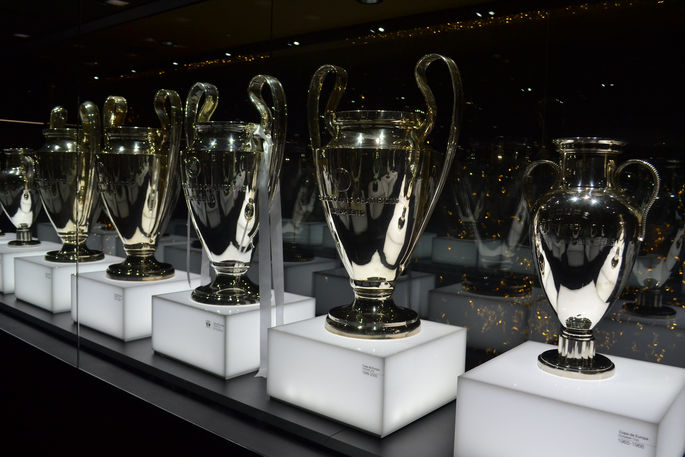
The first ever match in the newly formed competition took place on the 4th of September in 1955, with Sporting CP and Partizan fighting out an entertaining 3-3 draw. The teams were battling for the chance to take part in the final at the Parc des Princes, with Real Madrid and Stade de Reims earning the honour.
It was the Spanish side that claimed victory, having to come from behind to do so. It was to be the start of a love affair between the Spaniards and the competition that would see them go on to win the trophy more times than any other side by quite some distance. They started that particular journey by defending the title the following season, playing the final at their own home ground of the Santiago Bernabéu.
Real won the first five iterations of the competition, culminating in a 7-3 win over Eintracht Frankfurt at Hampden Park in the 1960 final that remains the highest scoring final in the tournament’s history. A shock was in store for them the following year when their bitter Spanish rivals Barcelona knocked them out in the first round, meaning that Los Blancos wouldn’t win the competition for the first time since its formation. To make matters worse for Real, they couldn’t even say that they lost to the eventual winners as Barca were beaten 3-2 by Benfica in the final at the Wankdorf Stadium.
Benfica dreamt of being able to repeat Madrid’s period of domination and they retained their title the following year by beating the Spanish side 5-3 at Amsterdam’s Olympic Stadium. They even reached the final the following season but lost 2-1 to AC Milan, seeing the trophy leave the Iberian Peninsula for the first time and head to Italian shores. It remained not only in Italy but also in the same city the year after when Milan’s neighbours Internazionale beat Real 3-1. The 1964-1965 season’s final was in Inter’s home stadium of the San Siro, so it was only right that they defeated Benfica 1-0 to retain the trophy and ensure a hat-trick of years of the trophy being in Milan.
The Formation of the Champions League in 1992
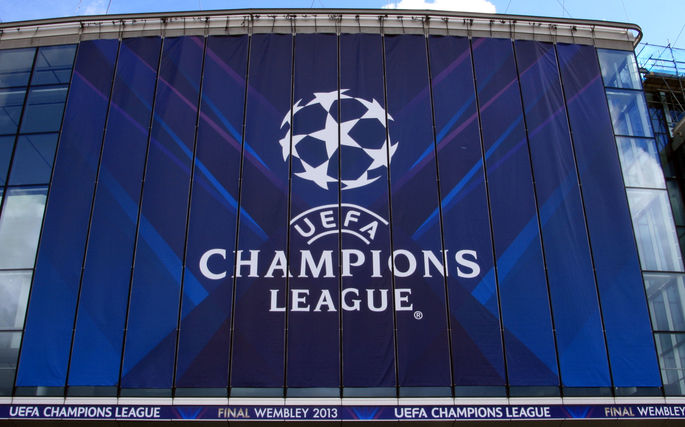
The European Cup remained much the same for the following few decades, with slight tweaks to the way it worked taking place every now and again. It wasn’t until the start of the 1990s that UEFA decided to mix things up in a big way, asking their commercial partner Television Entertainment and Media Marketing to rebrand the competition. As a result TEAM came up with an anthem, a new colour scheme and a logo that would be become recognisable all over world.
The decision was also made to change the way that the competition worked in terms of the teams invited to enter it. It was no longer restricted to the champions from each nation with a strong enough coefficient to take part in it, but instead was broadened to include teams that had done well in those domestic leagues without necessarily winning them.
Qualification & Stages
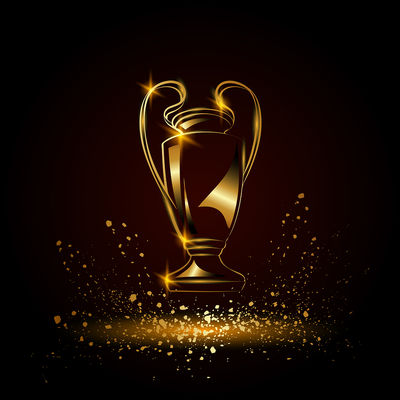
Qualifying for the Champions League is actually quite an arduous process. There are thirty-two teams in total that can participate in the tournament proper and each European associate nation will be allocated a certain number of entries for the competition. For example, in England the ranking of the country allows for the top four placed teams in the Premier League to automatically gain entry into the tournament proper. Other European nations have different coefficients and therefore a different number of teams that are allowed a place in the competition.
There are four qualifying rounds in total, including play-off rounds. The coefficient ranking of each team will dictate what stage they are entered into the draw. Obviously, teams progressing from previous rounds will move forward, but new teams will be added at each stage of qualifying in order to whittle it down to the final thirty-two teams for the Champions league Group Stage.
Once into the Group Stage, the thirty-two teams are split into eight groups of four. Each team will be seeded, firstly with the top eight teams all being placed into separate groups. After that, no team from the same country can play within the same group as another team from their country, often resulting in some quite confusing draws. In terms of how the seeding is decided, UEFA seem to change it on a yearly basis. For that reason we’re not going to go into too much detail here, except to say that the likes of a team’s performance in their domestic league as well as in the competition itself in the past tends to dictate a team’s seeding.
In the Group Stage each team plays each other side twice, once at home and once away. The top two teams from each group will then qualify for the knockout stage of the competition proper, made up of sixteen teams. The country protection rule remains in place at this stage, with each team once again playing each other twice, both home and away. The away goals rule no longer counts so if the scores are level at the end of the second-leg then firstly extra-time and then penalties might be required to decide a winner.
The final is played on a neutral ground that is decided well before the start of each season and is just one game. Extra-time and penalties can again come into play if the scores are level at full-time.
Famous Finals
The Champions League is a competition that lends itself to excitement and intrigue. The stakes are massive, with many considering the tournament to be the peak of a club side’s exploits over the course of the season. In terms of major trophies, it is thought of in the same way as a domestic league. Consequently, there have been some truly fascinating and thrilling contests over the years, both in the group stage and the knockout rounds. Here’s a look at some of the most famous finals that the European Cup and Champions League has ever witnessed.
Celtic’s Lisbon Lions – 1967
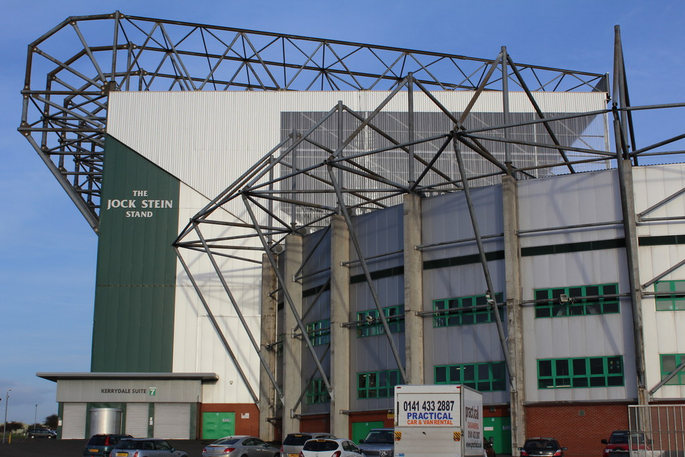
Very few people in football gave Celtic a chance of winning the European Cup when they reached the final in 1967. It was taking place in the Portuguese city of Lisbon at the Estádio Nacional and the Scottish side’s opponents were Internazionale, the Italian side that had won the competition two years running in 1964 and 1965.
Given that the Scots hadn’t played in a European Cup final before, many thought that the odds on them winning were as good as nought when Sandro Mazzola converted a penalty for Inter after just seven minutes. The Scottish side never knew when they’re beaten however, and goals from Tommy Gemmell and Stevie Chalmers gave Jock Stein’s men a 2-1 win and saw them immortalised as the Lisbon Lions forever more.
Bayern Batter Atletico In A Replay – 1974
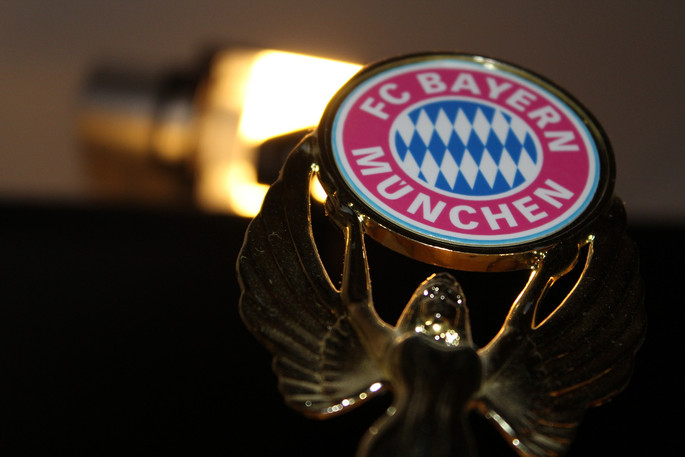
Nowadays penalties help to decide a drawn game, but that wasn’t the case back in the mid 1970s when replays were needed to decide a winner if one couldn’t be found after extra-time. That’s what happened when Bayern Munich went up against Atletico Madrid in 1974 and the Spanish team scored a goal in extra-time that seemed likely to hand them the win. Instead Bayern equalised with practically the last kick of the game, and so a replay took place two days later.
If the first game had suggested that it was likely to be a tight affair then no one told that to the Germans, who ran out 4-0 winners. They celebrated so much that they lost their league game the next day 5-0.
Liverpool and Juventus Witness Tragedy in Heysel – 1985
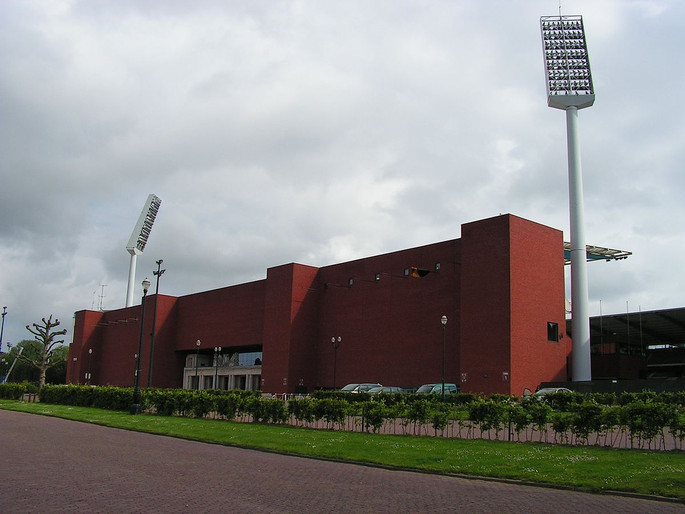
Away from the success and excitement of other Champions League finals comes this tragic moment in 1985, when Liverpool and Juventus went up against each other at Heysel Stadium. Both clubs had complained to UEFA that the venue wasn’t fit for purpose ahead of the match, but the competition’s governing body ignored the warnings. Worse, they allowed one section of the stands to be a ‘neutral’ zone, with both Liverpool and Juventus fans managing to get tickets.
The stadium was already crumbling ahead of kick-off, so when Liverpool supporters charged at Juventus fans in the neutral area and the Italians backed away the ground wasn’t strong enough to cope with the pressure and a wall collapsed. People attempted to flee and thirty-nine supporters died. As a result, Liverpool fans were charged with manslaughter and English clubs were banned from European competition for five years.
Manchester United’s Two Minute Turnaround – 1999
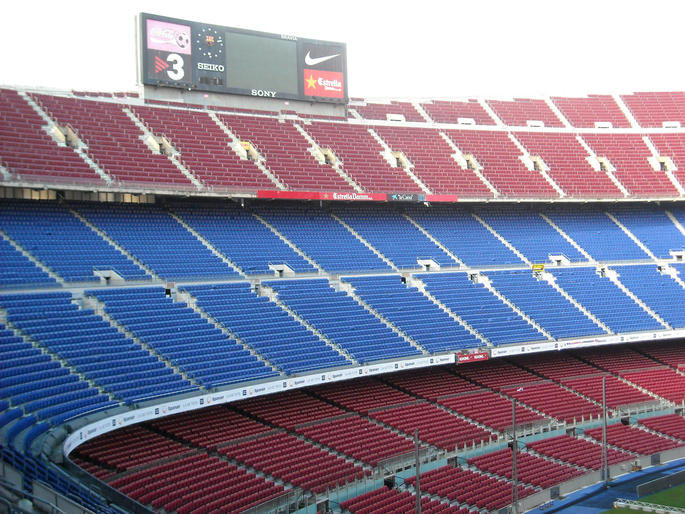
In England everyone was very much used to the idea of ‘Fergie Time’ when Alex Ferguson’s Manchester United team went up against Bayern Munich in the 1999 final. That news mightn’t have spread to the Bundesliga however, with the German team feeling that they had the trophy tied up after taking a six minute lead, even when they conceded a corner at the dying moments of the match.
There would be three minutes of stoppage time and the second the board went up to show as much the ball fell to Teddy Sheringham and he equalised. Bayern must’ve thought they could win it in extra-time, but they still shouldn’t have conceded another corner almost directly from their own kick-off. Concede they did though, and Ole Gunnar Solskjær scored to give the Red Devils the famous win.
Liverpool’s Miracle in Istanbul – 2005
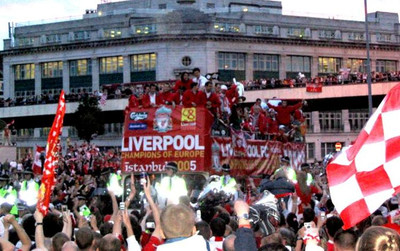
Liverpool’s league form under new manager Rafa Benitez had been pretty poor in the 2004-2005 campaign, but the Spaniard was still able to mastermind a trip for the Reds to the final of the Champions League at Istanbul’s Attaturk Stadium.
They conceded after just a minute, though, and their dream turned to a nightmare as AC Milan took a 3-0 lead into half-time. The Italians were one of the best defensive teams in the world at that point, so nobody gave the Merseyside club any hope of getting back into the match.
They were wrong to dismiss the notion of Scouse defiance, however, and three goals in six minutes saw them level and the game go into extra-time. Some gravity defying stops from the goalkeeper Jerzy Dudek as well as some antics during the penalty shoot-out saw Liverpool win the trophy for the fifth time and the match itself declared the greatest Champions League final ever.
Interesting Facts
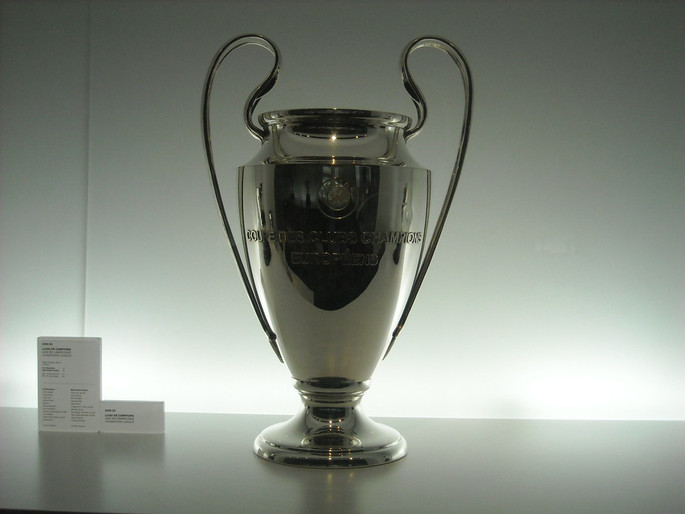
The winning team is presented with the Coupe des Clubs Champions Européens, which has had the same design each year since 1967, making it one of the oldest of its kind. In the past, any team that managed to win the tournament either three times in a row or five times overall were able to keep the trophy forever and a new one was created for the following season. That rule changed in 2009 and now the winners simply get a replica with the club’s name engraved on it.
The Champions League is often referred to as the most lucrative cup completion in world football. The prize money is broken down for each win that takes place so, for example, a win in the group stages earns the club €1.5 million. Winning the tournament and all their games in the group stages leads to a maximum payout of around €60 million. These figures don’t include TV money, of course, which often doubles what a successful team can earn with a good run in the competition.
Real Madrid are the most successful team in the tournament’s history, winning it fourteen times to date. Ironically, their neighbours Atletico Madrid are arguably the unluckiest side in the competition thanks to their three appearances in the final without a win. As a sign of Real’s dominance. The second best team in the competition’s history is AC Milan, who have won the trophy seven times. Liverpool and Bayern Munich have both won it six times, with Barcelona on five then Ajax coming next on the list thanks to their four victories.
Here’s a list of some other facts that you might enjoy:
- Six teams boast a 100% success rate in terms of final appearances and trophy wins: Nottingham Forest, Porto, Feyenoord, Aston Villa, PSV Eindhoven, Red Star Belgrade
- The biggest win at any stage of the competition came in 1973 when Dinamo București beat Crusaders 11-0
- Arsenal are yet to win the tournament but hold the record for the longest period of time without conceding: 995 minutes
- Bayern Munich have managed the most consecutive home wins in the competition, winning sixteen times in a row between September 2014 and February 2017
- Bayern Munich also became the first team to win the Champions League with a 100% record, winning 11 out of 11 in 2019/20
- At the time of writing Cristiano Ronaldo holds the record for the most appearances in the competition with 183
- Cristiano Ronaldo has also scored the most Champions League goals with 140 up until the end of the 2022/23 tournament
- The record at the time of writing for the most assists in a single campaign was achieved by both Luis Figo in 1999/2000 and James Milner in the 2017-2018 season with 9
- Edgar Davids and Zlatan Ibrahimović have both been sent of in four different Champions League games – more than any other player
- Alex Ferguson and Carlo Ancelotti have won the most game’s in the competition’s history with 107 victories each
- Carlo Ancelotti has won the trophy four times, ahead of Zinedine Zidane and Bob Paisley who lifted the trophy three times
